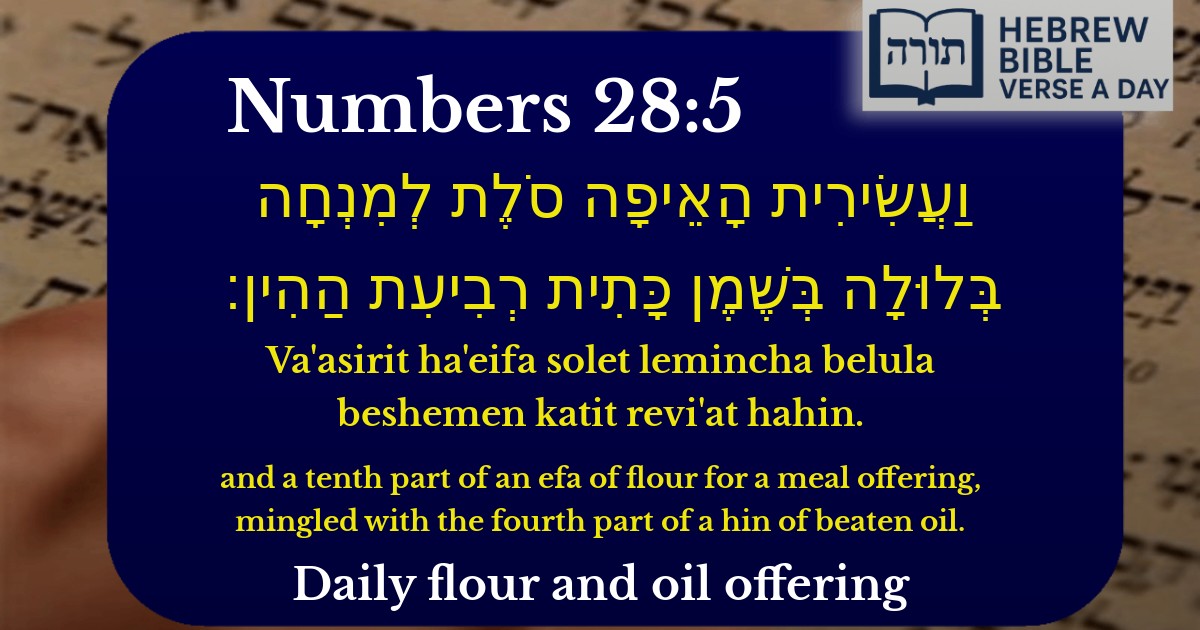Join Our Newsletter To Be Informed When New Videos Are Posted
Join the thousands of fellow Studends who rely on our videos to learn how to read the bible in Hebrew for free!
Hebrew Text
וַעֲשִׂירִית הָאֵיפָה סֹלֶת לְמִנְחָה בְּלוּלָה בְּשֶׁמֶן כָּתִית רְבִיעִת הַהִין׃
English Translation
and a tenth part of an efa of flour for a meal offering, mingled with the fourth part of a hin of beaten oil.
Transliteration
Va'asirit ha'eifa solet lemincha belula beshemen katit revi'at hahin.
Hebrew Leining Text
וַעֲשִׂירִ֧ית הָאֵיפָ֛ה סֹ֖לֶת לְמִנְחָ֑ה בְּלוּלָ֛ה בְּשֶׁ֥מֶן כָּתִ֖ית רְבִיעִ֥ת הַהִֽין׃
Parasha Commentary
📚 Talmud Citations
This verse is not quoted in the Talmud.


Explanation of the Verse
The verse describes the components of a mincha (meal offering) brought in the Beit Hamikdash (Holy Temple). Specifically, it details the required measurements of fine flour (solet) and olive oil (shemen katit) for the offering.
Measurements and Their Significance
Symbolism of the Mincha Offering
The mincha, unlike animal sacrifices, consists of simple flour and oil, making it accessible even to the poor (Talmud, Menachot 104b). This underscores the principle that sincerity, not material value, is paramount in serving Hashem. The mingling of oil with flour (belula bashemen) symbolizes the unity of physical and spiritual sustenance (Kli Yakar, Vayikra 2:1).
Halachic Details
According to the Mishnah (Menachot 6:4), the flour had to be of the finest quality (solet), sifted multiple times to remove impurities. The oil was mixed thoroughly with the flour before being offered on the altar, demonstrating the meticulous care required in divine worship (Rambam, Hilchot Ma'aseh HaKorbanot 12:6).